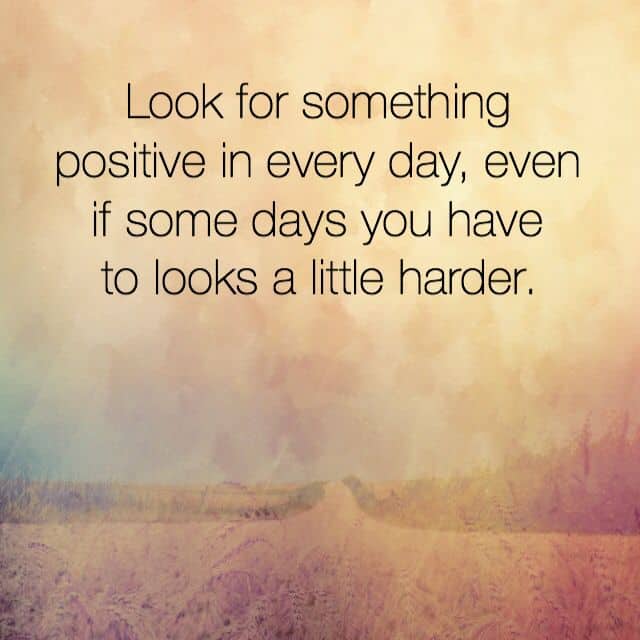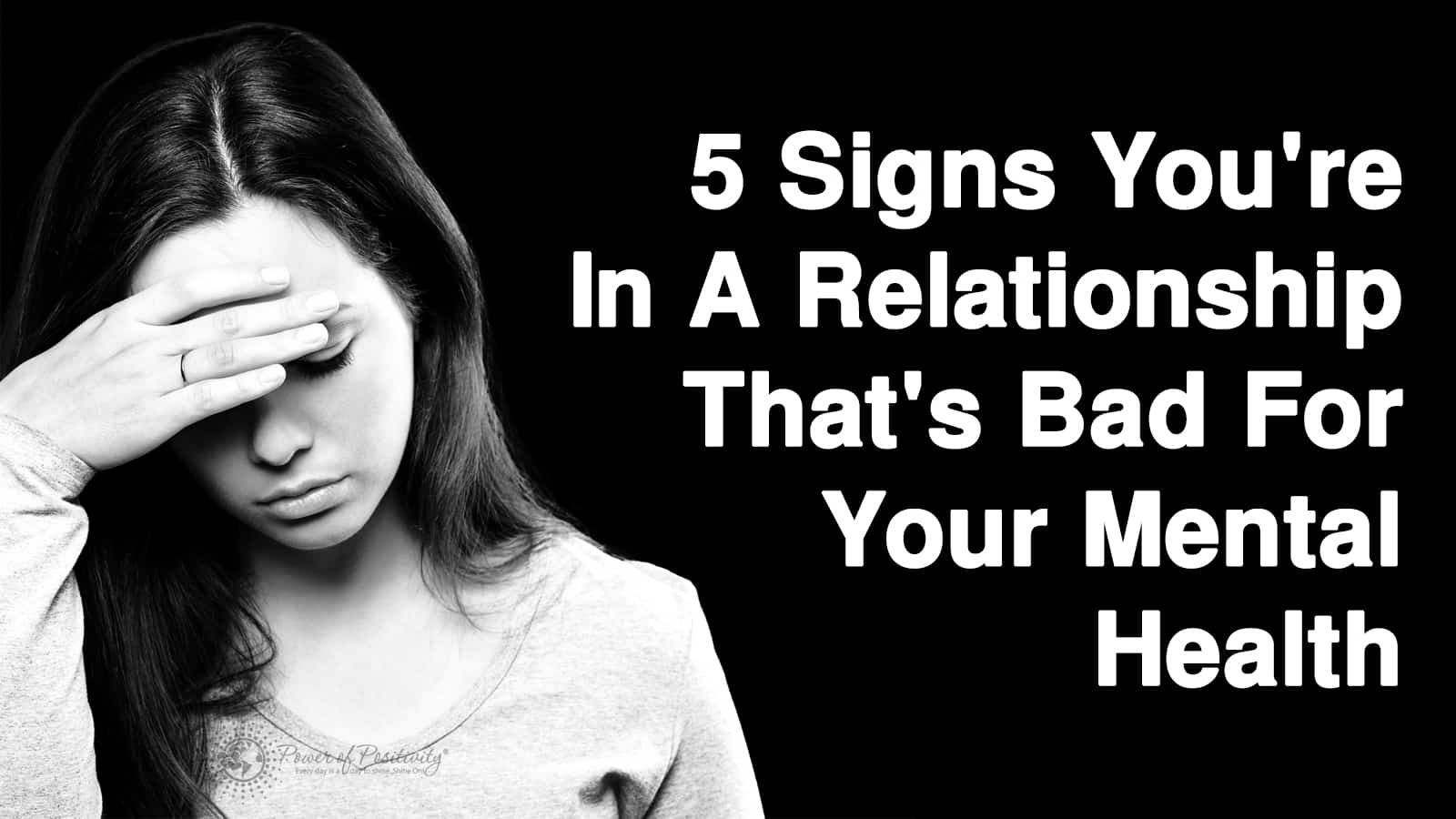When we enter into a relationship, it should always be good for our mental health. Our sincere hope is that we can share mutual, positive thoughts and feelings with the other person for a long time to come without burden. Much of the happiness that we derive out of a relationship is dependent upon our positive state of mind.
Ultimately, the success or failure of any relationship, friendship, courtship, marriage, etc., hinges upon the frequency, depth, and quality of interaction that we have with someone else. Eventually, our mental state is affected either positively or negatively, depending upon these interactions.
Unfortunately, there are many unhealthy relationships. Take divorce for example. While the statistics vary according to the source, about half of all marriages end in divorce (the actual stat is probably a bit less than half, actually). Divorce is an extremely painful event; one that can potentially damage someone’s mental health before, during, and afterward.
It’s not just divorce, however. Our friendship and dating relationships also have the capability to affect our mental health.
Five Factors That Impact How a Relationship Might Impact Mental Health

In the midst of a relationship whirlwind, it can be quite difficult to slow down and evaluate our mental state. Much of the time, our focus lies in one of two areas: (1) healing the relationship, or (2) devising a way to get out of it. The degree of damage that a negative relationship causes to our health depends on a few different variables, including the following:
- Length of relationship
- Type of relationship (marriage, friendship, courtship, etc.)
- If any violence occurs (mental or physical)
- Whether you have children together
- If infidelity took place
That said… any length of time that our emotional and/or mental health is suffering is too long. This is especially true when it is a direct result of a person that is unworthy of our love, affection and attention.
“How people treat you is their karma; how you react is yours.” – Wayne Dyer
Is Your Partner Harmful to Your Mental Health?
Here are 5 five signs that your partner may be bad for your mental health:
1. Continuously second-guessing thoughts and feelings (thinking perhaps you’re overreacting or being too dramatic/sensitive/etc.) when you have the right to be.
Occasionally, it is normal to second-guess our thoughts and feelings. After all, we’re human. That said, it is not normal for someone that we’re in a relationship with to act in a way that constantly causes us to evaluate our mental state and second-guess our emotions. If this happens repeatedly over time, there is a strong possibility that the other person is acting manipulatively.
It’s worth noting that there is often denial at this phase, either by the person causing the harm or by the recipient of it. The one causing the harm will generally deny intent, often saying things like “I didn’t know you felt that way…” or “I didn’t mean to …” However, the recipient will often deny the other person’s intent for them, as in trying to rationalize another person’s behavior!
2. It harms your mental health if you make excuses about their behavior
If we ever find ourselves making excuses for someone else, well, we need to stop. Now, this can be a difficult thing, especially if it’s someone we deeply care for and/or love. The problem with continuously making excuses for someone else is two-fold: (1) it enables the other person to continue their negative behavior without consequence, and (2) making excuses to other people about their behavior will harm another relationship: the person we’re giving excuses to. It’s only a matter of time before they begin to feel used and mistreated.
But, we also need to watch the excuses we make. For example:
- “I’d rather settle for him/her than be lonely”
- “They’re a great friend, I’ve done something wrong”
- “I don’t want to hurt their feelings…”
- “I’ll bring it up later…”
3. Denying yourself the right to think/feel/act…
If our excuse-making gets out of control or we’re so keen on sustaining a relationship that’s not working, we’ll often flat-out deny ourselves the right to think, feel or act. Some of us will even talk ourselves into thinking that we’re somehow a benefactor for putting someone else before us!
We see this often with couples, especially those that have children. One person is completely disillusioned with the relationship, but “for the sake of the kids” or “not wanting to stir the pot” they’ll just bury their thoughts, feelings, and emotions. They certainly won’t take any kind of action that may change their circumstances. This will also happen with someone who’s been a close friend for a long time.
4. Unsettled anger, fear, or anxiety when interacting with your partner can harm mental health
In a relationship that’s been mentally unhealthy for some time, there will often be a sense of negative emotions being amplified by communicating with the other person. There’s almost a sense of dread that never quite dissipates, despite our best efforts. It’s as if we’ve been hurt for so long, that any conversation or other type of interaction causes negative feelings to resurface. The frequency and intensity of these thoughts and emotions are generally related to the severity and length of the mistreatment. Consistently negative thoughts and emotions will harm our mental health.
5. Constantly trying to ‘fix’ the relationship to little avail
A relationship is a two-way street. Both people have to be willing to give and take from time to time. When someone is not willing to reciprocate the type of effort needed to sustain a healthy relationship, there is often little that can be done. If, despite our effort to do so, the other person either: (1) seems to change only for a short period of time or (2) refuses to make any type of change to their behavior, it is likely a telltale sign that the relationship is just not going to work out. Friendships cannot be forced. Dating cannot be forced. Marriage cannot be forced. We can “work” on a relationship, but that’s only possible if both people are willing to put in the time and effort to do so.
In summary, we should not be willing to tolerate a continuously negative relationship. While we may be reluctant or fearful in cutting ties with someone else, it is oftentimes for the best – both for us and for them. We should be proactive in taking our mental health with the utmost seriousness while refusing to engage with people who threaten to unsettle our emotional and mental stability.




















